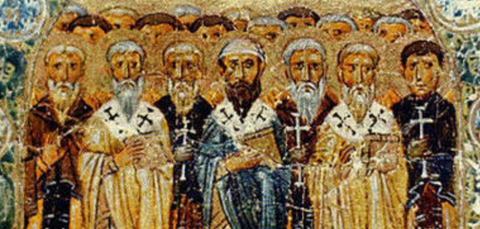Gary discusses the upcoming event with Doug Wilson as well as some of the critics voicing their opposition to it.
My first foray into the topic of eschatology was not a directed attempt to answer dispensationalism. When I was hired by American Vision in 1981, I concentrated on worldview issues with the first volume of God and Government that was published in 1982. I would often lecture on the subject. Invariably, there was always someone who would ask, “Why are we talking about these subjects because the Bible predicts that before Jesus returns world conditions will go from bad to worse?” This was more than 40 years ago!
While I had embraced the position of J. Marcellus Kik in his book Matthew 24 while I was in seminary at the height of The Late Great Planet Earth craze, I had not thought that much about prophecy including ultimate end-time events. Heaven, hell, the resurrection, what type of body we might have, the dead not getting their bodies until Jesus returns or new bodies at death, were not topics I thought much about. You can tell this from my books and articles on the subject. Eschatology was important as an apologetic to help Christians to move from “why polish brass on a sinking ship” to let’s rebuild the ship of state and everything related to it (self-, family, church, and commonwealth). That’s what God and Government and Ruler of the Nations were about.
The hermeneutic I used to deal with prophetic passages helped me and others better understand God’s Word more consistently. As more questions arose, however, I had to deal with additional texts. Over time, with lots of study and comparing what other solid commentators and scholars came up with, I began to scrutinize some traditional interpretations of specific passages that did not seem to fit into the standard eschatological box that we were called on to confess. In doing this, I noted a lot of inconsistencies. After the publication of The Reduction of Christianity (1988) and many editions and printings of Last Days Madness (1991-2022) and numerous radio interviews and debates other people noted them as well and would often contact me and ask for help. This forced me to do more study.
As a result, I became the go-to-guy to be approached by people who had questions about eschatology. They asked questions about inconsistencies among prophecy writers. This can be seen when Ken Gentry is compared to Phil Kayser and Doug Wilson is compared to Kenneth Gentry on specific texts.

When Creed and Confessions Don't Say Enough and Commentators Don't Agree
What should Christians do when varying and even opposing interpretations exist among church leaders and historic writings? The many Creeds and Confessions of the Church are meant to be guides to faith, and as such they are very useful and have their place. But most denominations have their own preferred document and many of those disagree in places, especially in the area of eschatology. The same goes with commentators; varying opinions and interpretations of the same Bible text are commonplace.
Buy NowIt has been announced that Gary and Doug Wilson will discuss eschatology in a three-hour event in Moscow, Idaho in early November. Gary discusses this opportunity as well as some of the critics voicing their opposition to it due to “platforming heresy.” It is a tired play that has been done before.

